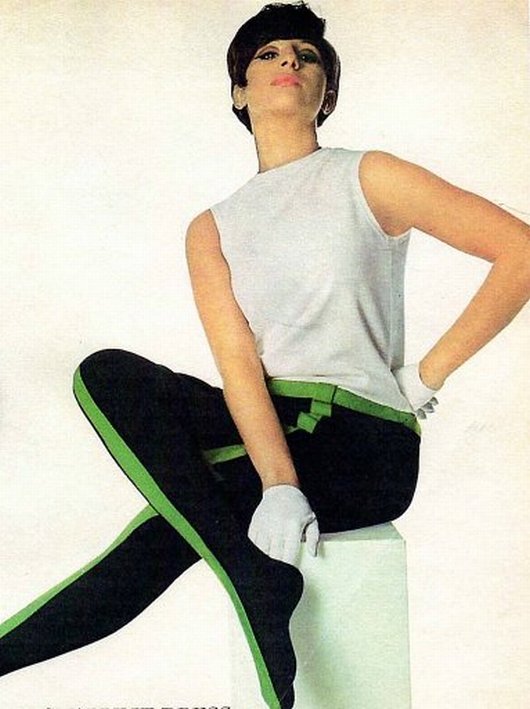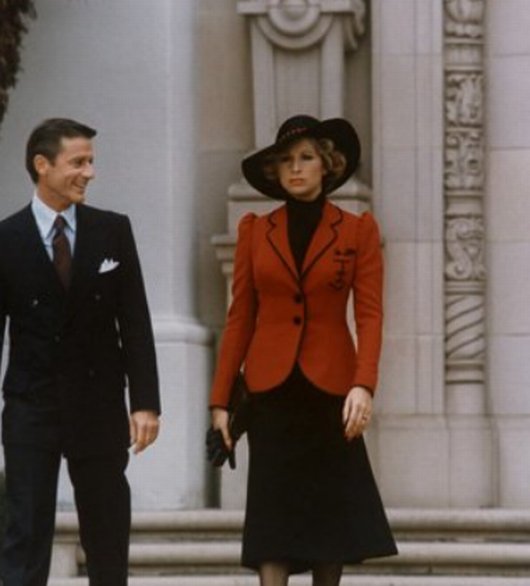
Known in Flatbush
by ELLEN COPPERFIELD
Manny Streisand was her father, known in Flatbush as the instructor of troubled men at the Brooklyn High School for Specialty Trades. The E. 7th street tenement he was born into charged a rent of $15 a month. Heading into Manhattan for the only honeymoon he could afford, Manny Streisand banged his head against the windshield when the car in front of him stopped short. Five years later, he began to suffer the first of many seizures. On August 4th, 1943, he was dead.
His daughter Barbara was almost a year and a half. She was not yet Barbra, she was still Barbara. She did not cry as a child, despite the fact that her grandfather was a malicious tyrant. Her mother Diane, unable to cope with her husband's early passing, was keen to drop the girl off with a caretaker whenever she could.
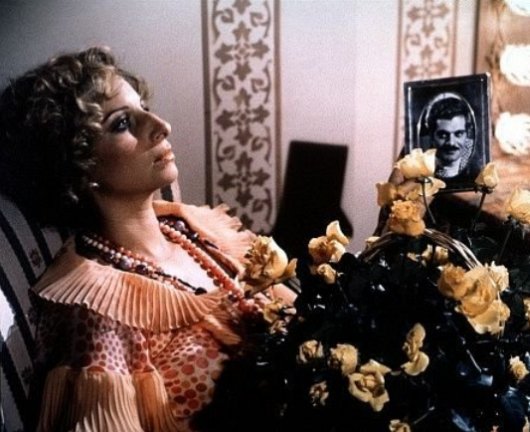
When she was old enough for school, she was old enough to experience its displeasure. Her peers called her Big Beak and drew attention to her lazy left eye. The Yiddish word for an ungainly misfit was "mieskeit," and everyone knew that was her.
Her mother was attractive enough to find a second husband, and young Barbara did not care for her suitors. Barbara tried to turn them away like Penelope. When these strange men kissed her mother, Barbara thought they were trying to take Diane from her.
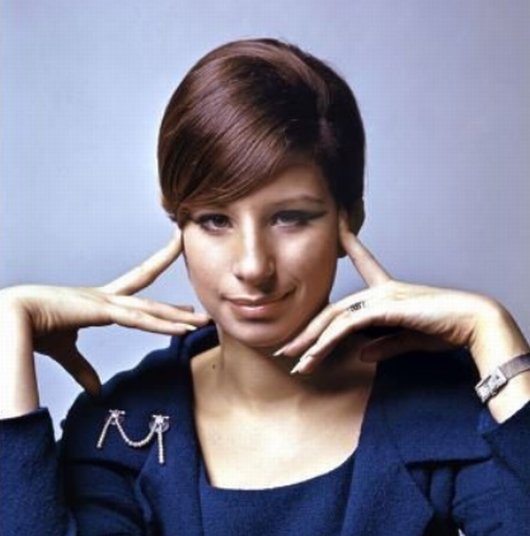
A neighbor in her Brooklyn building knit the young girl a sweater to wrap around her only toy: a hot water bottle. Her mother became concerned by Barbara's lack of interest in eating. The only time she paid attention to the girl was when she was force-feeding her something or other, possibly a knish.
She sang for the first time at the age of seven. She rushed breathlessly into her mother's embrace afterwards, eager for her approval. Her mother told her, "Your arms are too thin."
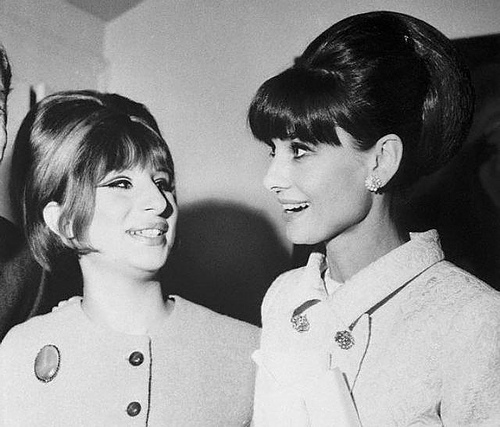
Her mother found another man, one in the garment business. He impregnated her but refused to get married for some time. Diane Streisand moved into a one-bedroom on the corner of Nostrand Avenue. The rent was $105 per month.
Barbara's new father Louis Kind hated her, would criticize her clothes in front of her friends, brought no money to the family, beat his new wife. When one of her friends asked why Kind owned a different last name, she told the girl, "Oh, he uses that name for business."
On the plus side, her new father possessed the only television set she had ever had. She imitated everything she saw, showing her mother the correct way to hold a cigarette for the first time at the age of ten. Lucille Ball was generally regarded as the best.
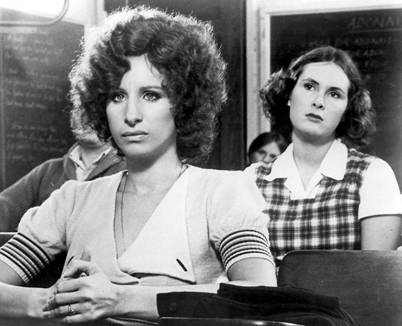
Her first band in elementary school was Bobbie and the Bernsteins. She was Bobbie, backed by twin sisters, her closest friends at school. She never invited them over to her house out of fear. One of her classmates told her, "Barbara, please don't sing anymore."
For her fourteenth birthday, her mother nixed the idea of going to see My Fair Lady. Instead, her and her friend Anita Sussman saw The Diary of Anne Frank. At first she cried at the bracing similarities of her own existence, but afterwards it occurred to her as if there had never been a question: that part was made for her.
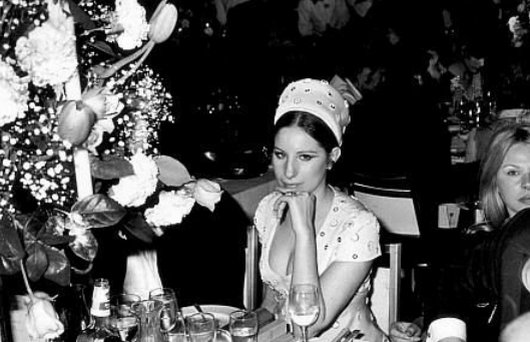
With her family in tatters, she sought a second home and found it in Jimmy and Muriel Choy, a Chinese couple who owned a restaurant on Nostrand Avenue. Kosher food had the disadvantage of being associated with her awful parents; Chinese food meant magnificent life in comparison. She schlepped from table to table as a waitress, the only Jewish one they had.
High school was a different matter. Her desire to sing and perform became a singular force of will, the only one she required. She had never been identified as gifted in school, but a mandatory IQ test quickly revealed the truth. With a quotient of 124, she was quickly shuttled into the honors classes. Still, she did not fit in with the smart students, and she ate alone. One teacher called her "self-centered."
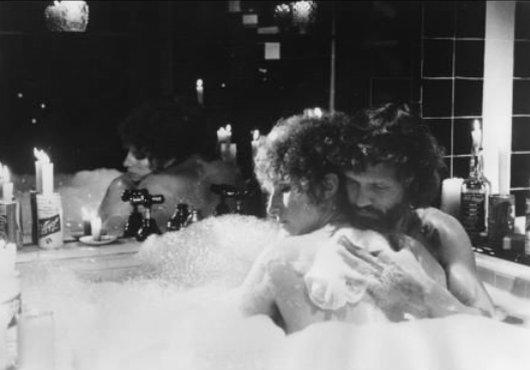
Sex was taboo in her home. Information had to be attained through other avenues. She asked Muriel Choy whether the man was always on top during intercourse. Muriel responded, "Not necessarily."
Her first romance was with the best-looking guy in her theater troupe. She had always been considered the ugliest girl in school. He did more than admit she wasn't: he told her she was attractive, the first person who had ever done so. Her second boyfriend was a black guy named Teddy. People were absolutely flabbergasted.
The pace of things began to pick up, even if the world wasn't exactly to her liking. She auditioned for Otto Preminger's cinematic version of the Joan of Arc story, Saint Joan. They chose a gentile. Her mother separated from her abusive stepfather and had to sue for a measly $37 a week. To make ends meet, her mother sold undergarments in her building's laundry room and asked her daughter to steal milk bottles from where they sat outside their neighbor's doors.
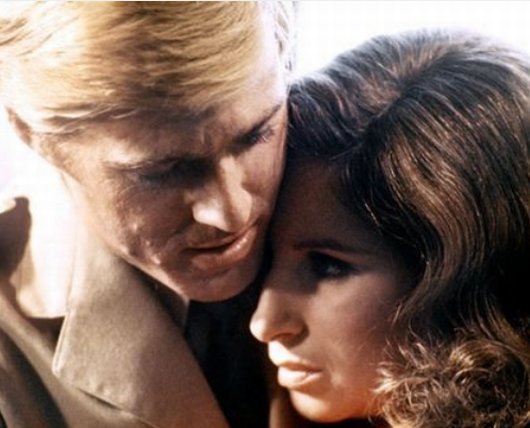
A theater near her home would play Italian films. She did not understand the language. When Jerry Lewis movies filled the theater, she imitated him in the lobby for other patrons. Her mother let her use their college savings ($150) to fund an apprenticeship at an upstate New York playhouse. Her first part was as a Japanese child leading a goat, and the role meant she had to clean up the animal's droppings after every performance.
She continued to lie about her age, hoping she would be accepted into a year-round program at the Cherry Lane Theater in Greenwich Village. Her mother trashed the clothes that her theater friends gave her out of kindness, and accused them of enslaving her daughter. She adopted a new style: skirt, stockings, shoes, leather bag, all blacker than black.
Some time later on, in her aspiring actress days, another student spotted Barbara and took notice. James Spada's 1995 biography of Barbra, Streisand: Her Life, has him remembering his first vision of the girl: "I remember this funny-looking girl on the stage sitting cross-legged...she had a very small part, she didn't have many lines. But boy, by some magic wave of her wand she was making everybody look at her," Dustin Hoffman said. "Did you ever see those pictures of a mother bird with the worm and there's a bunch of baby birds with their mouths open? Somehow there's one that's straining more than any other to get that worm from their mother. That would be Barbra."
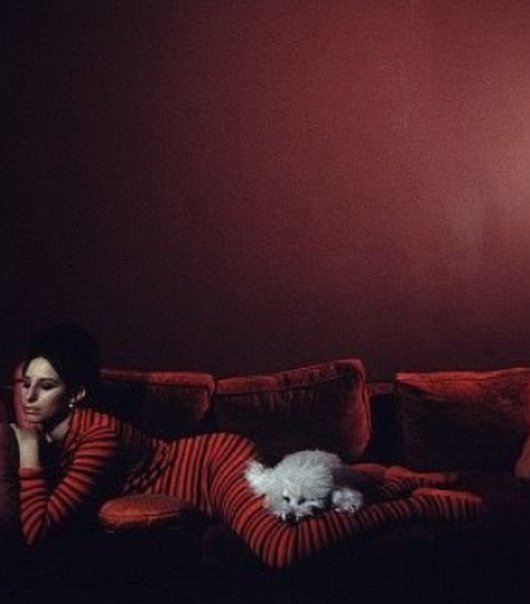
She met Warren Beatty, five years her elder. She rejected him for the moment, put off by his strategy of chasing every tail he saw. Her own early rejections were brutal — one casting agent wrote over her photo, "Talented. Who needs another Jewish broad?" When she invited her mother to watch her perform a particularly moving scene in acting class, her mother told her to give up and take a typing job.
Until then, her name had been Barbara. But she decided that there were a million Barbaras, and if she removed the 'a', only one Barbra.
Ellen Copperfield is the senior contributor to This Recording. She is a writer living in San Francisco. You can find an archive of her writing on This Recording here. She last wrote in these pages about the childhood of Kurt Cobain.
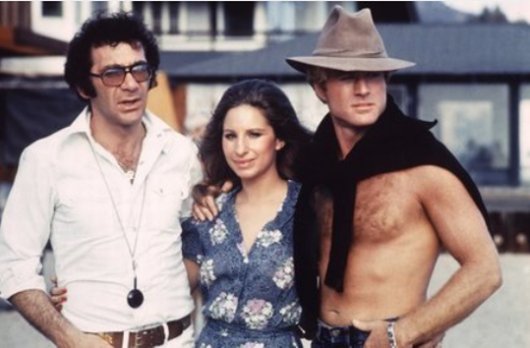 with Sydney Pollack and Robert Redford
with Sydney Pollack and Robert Redford
"Woman in Love" - Liz McClarnon (mp3)
"The Way We Were" - Donna Summer (mp3)
"Evergreen" - Luther Vandross (mp3)
